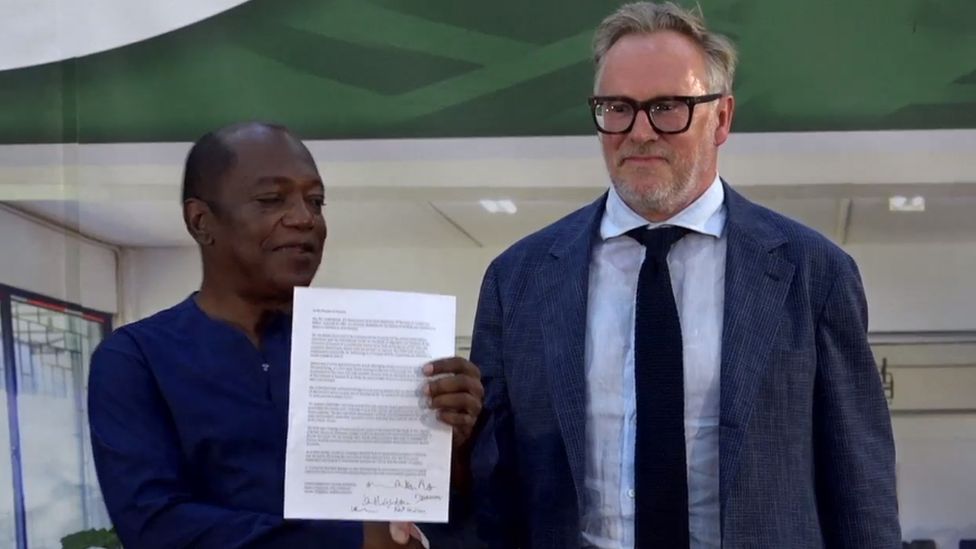-

-
-
Loading

Loading

Charlie Gladstone was unaware of his family's dark history until recently. After discovering that his great-great-great grandfather was involved in slavery, he initially felt private disgust. However, an opportunity arose for him to join a group of other descendants of slavers who were confronting their past. Through this experience, he formed relationships with people in the countries where his ancestor had owned slaves. John Gladstone, his ancestor, was a prominent slave owner in the British West Indies and the father of the 19th-century Prime Minister, William Gladstone. He owned or held mortgages over thousands of enslaved Africans in Guyana and Jamaica and received a substantial compensation after slavery was abolished in British colonies in 1833. Feeling deeply ashamed of his ancestor, Charlie Gladstone visited Guyana to apologize to the descendants of the enslaved and to condemn slavery as a "crime against humanity." Despite facing criticism and protests during his apology ceremony, Gladstone described the trip as transformative and has become a supporter of the reparations movement. Reparations can take several forms, including apologies and compensation for past wrongs. Caribbean nations have been urging European governments to engage with their reparations plans to acknowledge their role in the transatlantic slave trade. However, European countries have shown little interest until recent protests brought slavery's consequences back into focus. The Dutch government apologized last year for its involvement in the slave trade and pledged funds for slavery awareness projects. The Trevelyan family also apologized and offered reparations to Grenada. Now, with his family's apology and the establishment of a charity in Guyana, Charlie Gladstone is calling on the British government to apologize formally for its role in slavery and commit to reparations. Although Britain passed laws to end the slave trade and slavery in the British Empire, the government has never formally apologized or offered reparations. Prime Minister Rishi Sunak has refused to apologize, stating that "trying to unpick our history is not the right way forward." Charlie Gladstone disagrees with the Prime Minister, arguing that slavery's legacy of socio-economic injustices and racism still exists today. He sees reparations as targeted aid to address education, healthcare, and other legacies of slavery and believes the UK should follow the Netherlands' example. However, there are critics who question the legitimacy of reparations claims for injustices that occurred centuries ago. The UK government has no plans for reparations but will continue making aid donations to Caribbean nations. They state that the most effective response to past wrongs is to ensure that current and future generations learn from history and work together to tackle present challenges. Following his family's apology, Charlie Gladstone feels a sense of clarity and sees his role as raising consciousness about the issue. He believes that descendants of slave owners can confront their past without fear and contribute positively to the conversation. While the debate about reparations is complex, Gladstone is willing to support other descendants in coming to terms with their inheritance and believes that those who acknowledge their part in this awful legacy will be judged favorably by history.